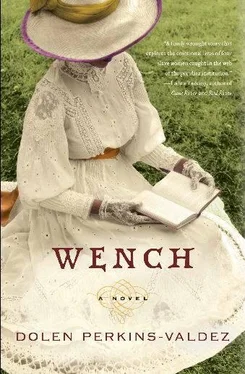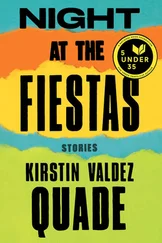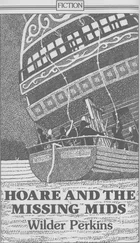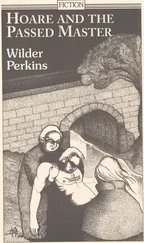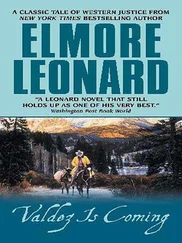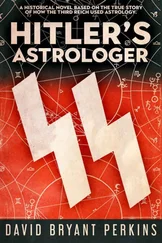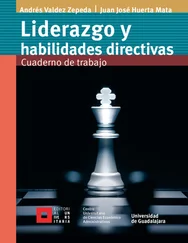Now that she could read, Drayle gave her the leftover weekly newspaper. She asked him questions about current events. She wanted to know about these fights over expanding United States territory. She had read about it aloud to the slaves in the quarters. She repeated Drayle’s words and told them any fight over new land was connected to their fate. The more slave states acquired, the greater the chance of slavery enduring. They wanted to believe in the whispers of abolitionism that came their way, stories of slaves freed up north, of rebellious uprisings, promises that there were white men out there who wanted to do away with this system of human bondage. But their everyday reality was bleak. Their work days were too predictable for them to imagine any other way of living. They did not know where this Texas was or what it had to do with them. A couple of the older slaves remembered the Missouri compromise, and they expected some other kind of compromise this time, too.
She was in the quarters reading to the slaves when she first learned Drayle planned to sell the one-eyed horse they’d taken to meet her sister the first time. She had learned the horse’s name was Mr. Goodfellow. Each time she walked past Mr. Goodfellow, it turned its human-like eye and studied her. She felt an affection for him that she did not feel for the other horses.
“But why are you selling him? Ain’t he a good horse?”
She stood up straight. She had been picking herbs out of the garden, folding them into the front of her shirt. The rosemary had finally rewarded her efforts, stretching long and elegant across the garden bed. It was an herb she had only recently discovered. Her sister Polly had given her a bit to chew on when she’d visited last. She’d planted it, hoping the seeds would take root. They had.
“Yes, he’s a good horse. But I just got word on another horse I’ve been wanting, and I’ve got to make a trade.”
“Don’t sell him, Drayle.”
“Lizzie, there are better horses on this farm. Besides, he only has one eye.”
“One good eye,” she said. “The other eye is there underneath that patch.”
“Say your goodbyes,” he said.
When she reached the pasture, she found Mr. Goodfellow grazing. Four horses stood off to one side, as if they had no time for a one-eyed horse. She tried calling out to the horse, but it only lifted its head for a moment and then went back to eating.
She went to find Philip. He was in the barn shoeing the Saddlebred. She told him she wanted to ride the one-eyed horse. She knew Philip as a quiet man who didn’t smile much. In the long stretches of silence that he made no effort to fill, one could hear him making a low clucking noise in the back of his throat from time to time.
He put down his tools and took a saddle off the wall. They walked out to the field together. When he whistled, the horse came. He saddled the horse, and helped her up onto it. She tried to steady herself. It was her first time on a horse alone.
“I’ll lead you,” he said. He led her around the field once and she stroked the horse’s mane. When she was done, she patted it on the face and whispered in its ear while Philip untied the saddle. Then he slapped the horse on its hindquarters and it moved back out into the field.
She circled the barn and slave cabins and made her way to the back entrance of the house. The women were scuttling around the kitchen with their heads bowed. Their movements were mindful, and Lizzie guessed there were guests in the house. She tied on an apron.
Fran appeared in the doorway, rubbing a sweaty forehead with the back of her hand.
“Lizzie, I have someone I’d like for you to meet,” she said. She stared at Lizzie’s equally tall but more youthful figure. Then she narrowed her eyes at Lizzie and sniffed, as if she could smell the reek of the horse sweat between Lizzie’s legs. “But clean yourself up first.”
He was tall and wore a crisp black hat that he did not take off even though he was standing inside the house. He sucked on something that smelled like tobacco, a hard lump in his lower right jaw, and Lizzie waited anxiously for him to spit on the clean wood floors. His shirt was wrinkled and loosely tucked into pants that bulged across his distended belly. He didn’t look like family and was dressed too shabbily to be a reverend.
Fran watched his expression so intently that a blue vein stretched taut against the white skin of her neck.
“So?”
Lizzie looked at the floor and grabbed both sides of her dress with her hands. She waited for the person who Fran wanted her to meet to jump out of the shadows. Surely it was not this tall, strange white man with whom she could have no business. He pulled his pants up.
“You say she can cook?”
“Of course.”
“You say she ain’t got no pickaninnies?”
“Not a one.” Fran looked over at her.
“Clean?”
“As a whistle.”
The lines of the hardwood floor converged in front of Lizzie.
“Healthy?”
“As a horse.”
“What’s the catch?”
“There’s no catch, Mr. Simpson.”
He paused and pulled up his pants again. Lizzie lifted her eyes to look at him. The light outside had turned dusky red and he squinted in the dim light of the hallway, as if trying to ascertain if there were certain things wrong with her that were invisible to the naked eye. Reading his face, Fran lit another lamp and the foyer brightened a bit.
Lizzie could taste her last meal on her tongue, and she tried to separate out each flavor in her throat. As the knowledge of what was happening to her rose fully in her mind, she tried to remember the last time a trader had entered their place. She vaguely remembered a slave who had tried to escape three times, the last time taking his bow-legged woman with him. She remembered they had spoken some other language, a bastardized echo of what their mothers had taught them, and she remembered the two had been cousins. The slave patrollers returned with the bow-legged woman but without her cousin. No one knew what happened to him, but soon it was clear the woman was big with a child. She gave birth soon thereafter, early, to a tiny baby that didn’t look quite ready for the world. The baby lived, but the woman never knew that because she was sold off to a trader who had stood outside in the swirling dust and eyed her just as this man was now eyeing Lizzie. Lizzie remembered that day. She had been a young girl, only a year on Drayle’s place, but old enough to hear and understand the whispers circling through the slave cabins and the dead expression on the woman’s face as she climbed into the back of the wagon.
Now here Lizzie stood in the same space, searching inside herself for her own response, wondering if the nothing she was feeling was the same nothing the bow-legged woman had felt.
He ordered her to open her mouth. She did. He poked around inside her mouth with his finger. Then he squeezed a breast. She flinched. He ordered her to take off her apron. She dropped it to the floor. While he ran his hand down the front of her dress, she saw Fran look nervously toward the window.
“What’s it going to be?” Fran looked as if she were ready to be done with the whole thing.
“I’ll take her.” he picked up something from the floor beside him and undid the piece of cord around it. He unfolded a musty blanket, and it coughed up dust as he wrapped it around her shoulders.
Lizzie didn’t protest, allowing him to lay the blanket across her shoulders like a shawl. She didn’t protest when he opened the front door and she followed him out to a horse tied to a ram-shackle cart. He pushed her onto the cart and tied her hands and ankles. He tightened the rope around her ankles and she felt it cut into her skin. She bit her lip until it bled. He turned to Fran and exchanged the money with her wordlessly.
Читать дальше
